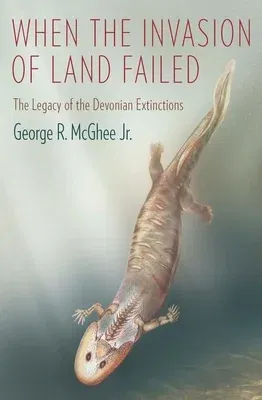George McGhee
(Author)When the Invasion of Land Failed: The Legacy of the Devonian ExtinctionsHardcover, 22 October 2013

Qty
1
Turbo
Ships in 2 - 3 days
In Stock
Free Delivery
Cash on Delivery
15 Days
Free Returns
Secure Checkout

Part of Series
Critical Moments and Perspectives in Earth History and Paleo
Print Length
336 pages
Language
English
Publisher
Columbia University Press
Date Published
22 Oct 2013
ISBN-10
0231160569
ISBN-13
9780231160568
Description
Product Details
Author:
Book Format:
Hardcover
Country of Origin:
US
Date Published:
22 October 2013
Dimensions:
22.86 x
15.24 x
2.06 cm
Genre:
Science/Technology Aspects
ISBN-10:
0231160569
ISBN-13:
9780231160568
Language:
English
Location:
New York
Pages:
336
Publisher:
Weight:
598.74 gm